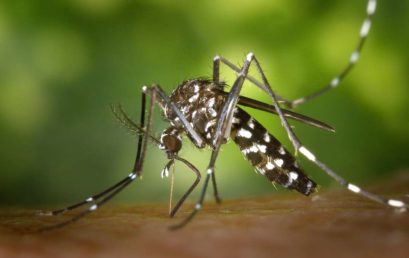Fall Respiratory Illnesses
Dear Trinity Community, The Trinity Health and Wellness team would like to extend our heartfelt thanks for allowing us to support your healthcare needs. Your well-being remains our top priority, and we’re here to assist you every step of the way. As we progress through the Fall semester, we want to remind everyone to stay...
Trinity Covid-19 Protocols
Trinity Covid-19 Protocols If you are sick or have symptoms of illness, STAY HOME! Staying away from others is the best way to keep everyone healthy. Faculty and supervisors should be understanding and helpful when students or staff say they cannot be present due to illness. It is important to encourage this healthy practice and...
Monkeypox Updates from DC Health
Monkeypox is a rare, but potentially serious viral illness that can be transmitted from person to person through direct contact with bodily fluids or monkeypox lesions/rash.
COVID-19 Vaccine Information
As previously announced, Trinity will require all students, faculty, and staff to be fully vaccinated against Covid-19 prior to being on campus.
Coronavirus (2019-nCoV)
Coronavirus (2019-nCoV) Summary Information 2019-nCoV is a newly identified coronavirus that is causing an outbreak of pneumonia illness. Trinity Washington University is closely monitoring the COVID-19 (Coronavirus) situation and taking all necessary steps to protect the health and well-being of our students, faculty, and staff. The virus It was first identified in December 2019 in...
Zika Virus
Zika Virus What is it…… Zika is a virus closely related to West Nile, Dengue and yellow fever. It is spread by mosquitoes that are found in tropical regions. Who can get Zika? Anyone can get Zika. Currently, the only people who have contacted this virus have travelled to areas where there are active...
Mumps
Mumps Alert Spring + Fall 2017 – several cases of Mumps have been diagnosed on several college campuses in Washington, D.C. Please alert the health + wellness center with any of the following symptoms: Signs & Symptoms Mumps is best known for the puffy cheeks and swollen jaw that it causes. This is a result...
Meningitis
Meningitis Why do I need to be aware of Meningitis? Meningitis and meningococcal septicaemia (blood poisoning) are serious diseases that can strike rapidly with little warning and if left untreated could be fatal. Outbreaks of meningitis tend to occur where people live or work closely together, such as universities or colleges, living in halls of...
Measles
Measles What is Measles? Measles is a highly contagious respiratory disease caused by a virus. It spreads through the air by coughing and sneezing. Measles starts with a fever, runny nose, cough, red eyes, and sore throat, and is followed by a rash that spreads all over the body. About three out of 10 people who...
Flu Information
Flu Facts Prevention Seasonal flu vaccine Wash your hands with soap and water Avoid touching, eyes, nose, and mouth before washing hands Avoid close contact with sick person Eat healthy foods, drink plenty of fluids and get adequate sleep and rest Cover your cough or sneeze with a tissue or elbow. What are the...




